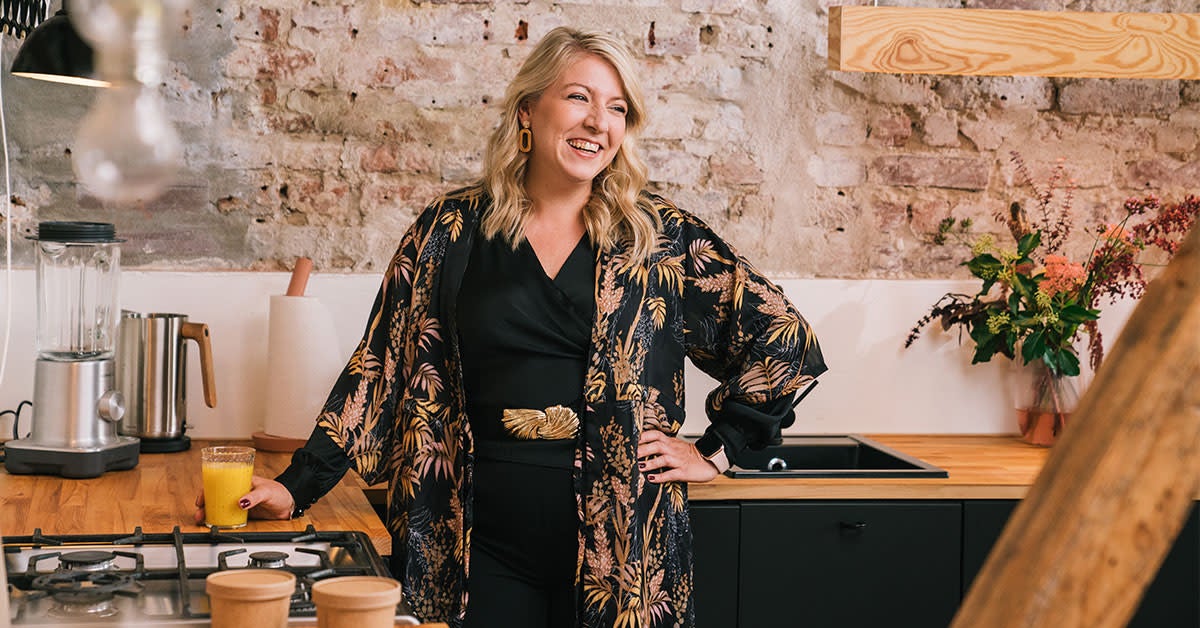How a little acceptance can help you handle emotional eating


You feel something. Food makes you feel better. That, in two short sentences, sums up emotional eating. It applies to all emotions, not just the negative ones. What triggers you to respond this way may be as individual as a fingerprint: the bad and good that come from work, relationships, parenting, illness, and even boredom. That’s the reason emotional eating may be a factor in why some people gain weight and one of the biggest obstacles to losing it.
“We know that emotions could influence eating, and that may get in the way of long-term weight-loss goals,” says Edie Goldbacher, PhD, associate professor of psychology at La Salle University, who notes that the topic has received an increasing amount of research attention in the past 10 years. “The need can be powerful.”
Yes, it can. After all, food is love; food soothes; food fills a void. But that feeling is fleeting, and it’s possible that people know on some level that the satisfaction they get from the food is false and comes at a cost. Or, as Daniel Friedland, MD, CEO of SuperSmartHealth puts it, “Emotional eating feels good, but it doesn’t feel right.”
The key to breaking the cycle is understanding that the problem isn’t the food, or even the eating. The cycle kicks in long before you head to the kitchen.
Happiness is a warm doughnut.
Research suggests that more than half the people who are overweight or obese are regularly affected by emotional eating. Of course, we live in a culture where there’s an abundance of inexpensive calorie bombs available within minutes. “You might pass 30 junk-food options on the way home from work,” says Jason Lillis, PhD, assistant professor at the Weight Control and Diabetes Research Center at Brown Medical School.
At the same time, society promotes what Lillis calls “feel goodism.” That’s the idea that we shouldn’t have to feel unhappy—ever. “Our culture has little tolerance for negative thoughts,” he says. “But that’s not real life. Being alive means experiencing the entire range of emotions.”
Goldbacher concurs. “Emotional eating isn’t driven by hunger. And it’s not even the emotion that leads us to eat more. It’s our response to the emotion.” The majority of people she’s studied say they’re most vulnerable late in the day into the evening. “Your brain is filled with the day’s events, or things you have to face at home, or face tomorrow.”
Find comfort in discomfort.
The goal of new treatment approaches is to encourage people to live with uncomfortable emotions so they’re not compelled to numb them with food, says Evan Forman, PhD, psychology professor at Drexel University. He co-authored a study in Obesity in 2016 comparing acceptance-based treatment—which focuses on tolerating discomfort and making mindful decisions—with traditional behavioral therapies like distracting oneself from unhealthy eating. Patients in the acceptance-based program lost significantly more weight.
”Maybe you taught yourself in the past that the only way to feel less sad was to eat ice cream, and it became a habit,” says Forman, author of Effective Weight Loss: An Acceptance-Based Behavioral Approach. “But tolerating the sadness is a skill you can acquire. Instead of saying ‘I can’t stand feeling this way,’ you say ‘It’s OK. Sadness is part of being human. I will embrace it and learn from it.’”
Forman says this “can potentially be life-altering” because it helps give you the power to make decisions that are in line with your weight-loss goals, rather than trying to assuage your discomfort by eating.
Shift to a growth mindset.
People who decide to lose weight may start with a negative attitude about food. To achieve successful weight loss, Friedland notes, they have to transform from a static way of thinking—believing a setback is a failure, for example, and that nothing will ever change—to a positive, growth mind-set. “Discover new ways of responding to your emotions and you make it easier to focus on your goals,” he says.
How do you do that? Instead of allowing negative thoughts to drive automatic behaviors, pause and listen to your emotions. “Identify what you’re feeling and realize that this experience is happening because something you care about is at stake,” Friedland explains. “A person with a growth mind-set thinks ‘This is a gift. It will help me understand what’s important to me. I trust there are other ways to deal with the feeling. I can learn from this.’”
That shift also helps remind you of your most important values. “This is when you ask, ‘What do I really care about?’” Friedland says. “‘What’s my best response?’”